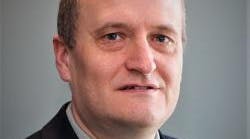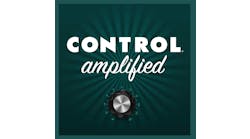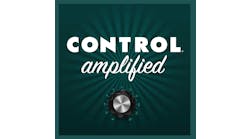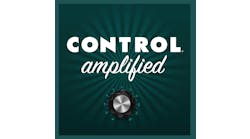For the engineers among us, it stands to reason that sustainable industrial organizations—those that are most efficient and least wasteful—would also be most profitable. But the very word sustainability carries with it a heap of negative, punitive connotations in the public consciousness. A long history of well meaning, but often rear-view mirrored regulatory reactions are in part to blame, says Chris Hamlin, a consultant working with Seeq to pioneer new ways to create business value using the company’s products and services. Key to improving the perception of manufacturing, energy and other “dirty” industries is greater transparency into the progress that modern industry continues to make on the sustainability front. “We now have the tools to visibly demonstrate that progress in near real-time,” he says. In this podcast, Hamlin and Control’s Keith Larson discuss the role that data analytics and other measurement and control technologies can play in sustaining the workflows that support those sustainability improvements, and even in attracting the next-generation talent that we’ll need to continue that momentum.
Transcript
Keith: Hi, this is Keith Larson, editor in chief of Control magazine and controlglobal.com. Welcome to this solution spotlight edition of our Control Amplified podcast. Today, I'm joined by Chris Hamlin, a consultant currently working with Seeq to pioneer new ways to create business value using that company's products and services. The topic of today is sustainability, particularly the role that data analytics and other measurement and control technologies can play in sustaining the workflows that support sustainability improvements across the process industries, and even in attracting that next-generation talent that we'll need to continue that momentum.
Welcome, Chris. Real pleasure to have you.
Chris: It's great to be with you as well, Keith.
Keith: Well, let me jump right in here. We've talked a little bit before this podcast about the bad reputation and the bad rap that industrial sustainability has. Can you maybe share some of your thoughts of why industrial sustainability continues to carry such a, kinda, sacrificial and punitive connotation?
Chris: Yeah, I mean, it's a really interesting conundrum, isn't it? Because most of us as engineers appreciate that good performance in reducing emissions and improving efficiency is a good thing for profitability, as well as a good thing for the environment, but with the same, there's this, kinda, sense that there's a trade-off.
I think actually what a lot of it comes down to, but it probably comes down to two different things. The first one is regulation. None of us like being told what to do. You know, it's particularly pertinent right now, but none of us like being confined, told what to do, and be told that if you don't do what you're supposed to do, you get fined, right? That puts a negative spin on that. And the whole world of regulation around environmental protection, greenhouse gas emissions, all the rest of it has been about limits and fines.
I think a couple of other pieces in that as well, there's definitely a legacy effect. When globally the climate change debate began, renewables were way more expensive than they are, probably orders of magnitude more expensive than they are today. I'm particularly thinking around electricity, a decision to use renewable electricity was expensive. They did incur additional cost. That's manifesting not the case today, but I think maybe the mindset hasn't shifted. And I think the language that we use around it underpins and drives that even more. You know, we always talk about this balance. I'd love to know what this balance is, this balance between profitability and sustainability, but why is it a balance? It implies that trade-off of one to the other. It doesn't allow any space for the two to come together and for sustainability to be good business.
So, you know, I think partly regulation and the fact that these limits and fines, partly the legacy that it used to be really expensive, and partly, the language is almost a subconscious bias that we're all conditioned into having when we're making business decisions that keep us locked in this place where, as you say, it’s sacrificial and punitive.
Keith: Yeah. It seems there's also kind of a timescale effect because regulators would look at, oh, how did you do in the past year? And then inflict the fine based on that as opposed to something that's more correctable in real-time or more seeable in real-time. Is that part of what we can maybe start addressing nowadays since there's maybe some more visibility or transparency?
Chris: Absolutely. Absolutely. I think there definitely is. I mean, the current regulatory framework and legislative framework is based on this idea of you get fined if you breach some sort of limit, right? And it's all retrospective. You know, it's something that at the end of the year, you declare how much of whatever it is you did, and if that was higher than it should have been, you pay a fine and it doesn't change anything. The damage has been done. The emissions have been emitted, right? All that happens is that as a business, we don't have as much profit as we would have had.
I think there's absolutely a case to say that today, there's no real reason for us to operate that way. It's not how we run the rest of the business. We run the rest of the business by looking at what's happening right now, and when we see things start to move away from where they should be, we put corrective action in place and bring it back to where we want it. But for some reason, this whole regulatory framework around emissions, in particular, hasn't caught up with the way we operate the facilities today in real-time or near real-time. So, yeah, I'm absolutely convinced that's a big part of it.
Keith: You know, obviously, we live and breathe the measurement control and analytic technologies, it’s where we both have grown up. What role do those latest technologies play in maybe changing that dynamic?
Chris: I think it's fundamental, right. You know, one of the great things that happened over the last 5 or 10 years, and will continue to happen into the future, is the idea of real-time process management is moving off the shop floor, out of the control rooms, and becoming, kind of, the standard way we actually operate and run the businesses, right? We've all seen, I remember the very first DCS system I put in place. I got it from the entirety of the rest of the organization. I mean, not inconceivable today, right? And what we're seeing is we're seeing businesses are operated the way we have always had to run plants. And I think, actually, what we as control engineers and automation engineers today need to get our heads around is that because of that transition, we aren't restricted to the shop floor anymore. We're not restricted to the control room anymore. We have a legitimate place in the business and operations management part of the industries we work with and the companies we work with.
It's as important for us to put the controls and the optimization around emissions, greenhouse gases, environmental compliance, efficiency, yield, all of these things, supply chain, supply chain management, sourcing decisions, all of that type of activities, the legitimate domain of control engineers today and absolutely in the future. So, yeah, I think this digital transformation that we're seeing, and it's not phrase I'd use very happily, right? This idea of digitalization and digital transformation absolutely changes the potential that we have for having a significant and profound impact.
Keith: And it's not just the process control engineers, but it's also the frontline operators and the plant floor crew as well. Don't you think?
Chris: Yes. That's absolutely the case. I mean, and again, taking this back to sustainability, and we're often really talking about decarbonization and greenhouse gas emissions in most of the industries we talk about around sustainability will be...it is a much bigger subject. One of the things that I've observed over the last several years I've been involved in this space is that there's an immense amount of asset going into writing best practices, writing legislation, building standards, massive, you know, undertaking studies, doing scenario planning. It goes on and on and on, academics, think tanks, government officials, government departments, all contributing to this explosion of knowledge, explosion of ideas of things that could be done, but what they all, kinda, seem to forget, maybe because they think it's hard, right? But what they all seem to forget is that unless the people, the manufacturers, and by that, it really means the folks that we've got on the front line, in the control rooms, on the factory floors, unless those people do something different, we have no impact at all. All of that thinking, all of that effort, all of that energy comes to nothing if it doesn't make a difference to the folks that we have running the facility.
So, a big part of what I've been trying to energize and, actually work with a number of companies to achieve is how do we make sure that, actually, something's happening in the manufacturing environment itself? I see on the plant floor, how do we inform the people that are running the plants for us on our behalf about what's currently happening, what could be happening, or what should be happening, and how the heck to get from what they're seeing to where they should be? Again, the emerging technologies we see, you know, classical control technology in large part and optimization, but then the great advances we're making around data analytics and machine learning, all of those things contribute toward our ability to inform the people we've got on the front line, if you like. Inform them about what they need to be doing to make a difference. So, yeah, unless those folks change, unless something changes for them, nothing changes at all.
Keith: So, it's as much about visibility to the frontline personnel, as it is about developing new algorithms to do something fancy. It's more about letting the operators know what the score is, really, isn't it?
Chris: Yeah, yeah, absolutely that, Keith. I don't wanna oversimplify the issue. I think there are two contributory pieces to why that's not quite so straightforward. One is that, how do you communicate that? Right? In economics, there's a law that they call Goodhart's law, which basically says that any good measure of something, when it becomes a target, ceases to be an effective measure. The reason being that people gain the system, right? We're all really intelligent, really smart people, and if you give us a target, we'll look at how to hit the target, perhaps without doing the things that were anticipated. You know, any others that are parents know exactly that, when we're trying to incentivize our kids to do the right things, right? It's amazing how they get the incentive without changing the behavior.
So, there's a big challenge around how do we resolve that problem? How do we make sure we've got clear transparency and clear line of sight from the actions of individual people on the shop floor, to the people that are running the company and the corporate level targets and indicators? And I think there's a lot of thinking that we need to do around that. And we have done a lot of work with a variety of organizations, and most notably let me call out the results efficiency collective at Cambridge University in the UK, which has done some really pioneering work around the measurement of resource efficiency from thermodynamic principles as a way of actually providing that line of sight, you know, providing a metric and a measure that can be used on the shop floor, that can be used just as well in the boardroom, without any real room, right?
Keith: Yeah. And so, that can be used universally across different companies and different organizations if they've got a similar piece of operating equipment. Is that the idea there?
Chris: Absolutely, that, yeah. I mean, the idea of results efficiency, at its most basic, says, you know, look at all of the inputs you put into a process, whether the energy with... Typically for us, they're either resources of energy or resources of materials, and then look at the effective or useful output you get. And then, say, well, how much useful output are we getting for the input? I mean, if you think about it, any manufacturing process is really about taking low-grade materials; think about steelmaking, you're taking low-grade iron ore and high-grade energy sources, coal or coke or whatever, you downgrade the energy resource, CO2, and you upgrade the material, right? So, you have to look at those two things together and understand what was happening with them together in real-time, right, to be able to really understand how your process is operating. That's a real challenge for chemical engineers. Because, as chemical engineers, we're trained, you do a mass balance and you do an energy balance, and never the twain will meet. Two different systems that you think about and analyze the two completely separate, independent, isolated ways. And we all know that's not true, but intellectually, that's still the mind construct that we have.
So, yeah. How do you combine those two things together, right? How do you add apples to oranges in a meaningful way? And that's what Karen Bishop has done a great job of, sort of, painting now. And they're not the only people doing that. There’s all sorts of organizations out there that are really putting a huge amount of effort into how do we measure performance in standard ways that work and apply across our industries. You know, there’s a Task Force on Climate-Related Financial Disclosure, tremendous organization providing some real structure around how do we think about the performance of our production assets and express that in a way that's consistent with the financial metrics we use to drive our corporations and are used to communicate with their investors. Similarly, the Carbon Disclosure Project, I think, now, they claim more than 50% of all publicly floated company. So, if you measure them by pocket cap, right? More than 50% now report carbon impact following a common set of standards and rules, right? So, somehow the challenge, I think, for operating companies today is how do you take those high-level metrics and translate them into things that people can act on in real time because they need to be acting on them in real time because the emissions are happening in real time. So, that's why you need to actually drive the change.
Keith: Are there any general guidelines in your practice when you go to visit with operating companies of things that typically need to be done first or the first few steps to, kinda, get your house in order for a more sustainable sustainability journey, I might say?
Chris: Yeah. Yeah. I mean, I think the very first thing is for any company or any business unit or any facility that wants to go down this journey—and I'd advocate, I think everybody should because we have almost a moral obligation to do it, right?—but anybody wanting to start on this journey, first up, is to decide what does sustainability mean to them, to that organizational unit, right? Because sustainability is a very broad church. It encompasses a whole variety of interconnected things and challenges and problems. It isn't only about greenhouse gas emissions and climate change, right? It's about water and water scarcity. It's about acidification of water systems. It's about biodiversity loss, and there's a whole bunch of social things that come in there as well. It's a very complex system. The good news is that the UN has published the Sustainable Development Goals. It's an incredible framework to use, right? And I would advocate anybody who hasn't seen those, just go on the website and look at the United Nations' Sustainable Development Goals and have a look and say, "Well, which of those apply to you? Which of those can you as an individual, as an operating company have a meaningful impact on?" So, first up, is what does sustainability mean to you? Well, it's that, kinda, your ecosystem that you determine you want to make a difference to.
I think having done that, and that's unique for each organization, it depends on who they are, what they do, what the manufacturing process looks like, how they employ people, who they employ, it's a whole bunch of different sockets. But what does it mean to you? Then align behind that. Understand who the people are that create the metrics and the measures, and the standards around how you measure performance in that space. I think the third thing then is getting to real time, right? Don't do this retrospectively. This isn't about in June of next year reporting on what we did in 2020, right? This is about making a difference now, which means you've got to be doing it and managing it in real time. I think my final step, I would say, is start small, sow seeds, and one of the wonderful things about sustainability is the drivers, the creative forces of it. It is a real motivator for a workforce. So, it will unlock creativity and innovation and potential in a workforce like nothing I've seen. So, start small, sow the seeds, but then build on it. Let's make it something that your workforce will live and strive for. Knowing that if you're working in real time, that sustainable performance is good, profitable performance as well. So, doing right by the environment is the same as doing right by your company.
Keith: Yeah. And I imagine if you publicize that sustainability journey, it's a great attraction to young people to enter the workforce as well and to come join your company.
Chris: Exactly that. I mean, I think, you know, as I talk around some of the big players in our industry and the industries that we work with traditionally, it's a widely acknowledged problem and challenge is, you know, how do we attract talent? How do we attract the brightest and the best young people into our industries? You know, any amount of polling and opinion gathering tells us that one of the things that young people look at today is what's the sustainability strategy that a company has? Do they walk the talk, right? Or is it just greenwashing, right? Greenwashing is a real dangerous area for a lot of our industries today. So, yeah, it's absolutely about attracting that talent and enjoying it, and then maintaining it and keeping it. It's very compelling, I think, in that regard as well.
Keith: Okay, great. Well, Chris, I certainly appreciate you taking the time to share your insights with us today. Stay well and stay safe. Really appreciate you joining us.
Chris: Well, thank you. It's been a pleasure.
Keith: I'm Keith Larson, and you've been listening to a Control Amplified podcast. Thanks for joining us. And if you've enjoyed this episode, you can subscribe to future episodes at the iTunes Store and at Google Play. Plus, you can find the full archive of past episodes at controlglobal.com. Signing off until next time. Thanks again, Chris, and have a great day.
For more, follow Control Amplified: The Process Automation Podcast




